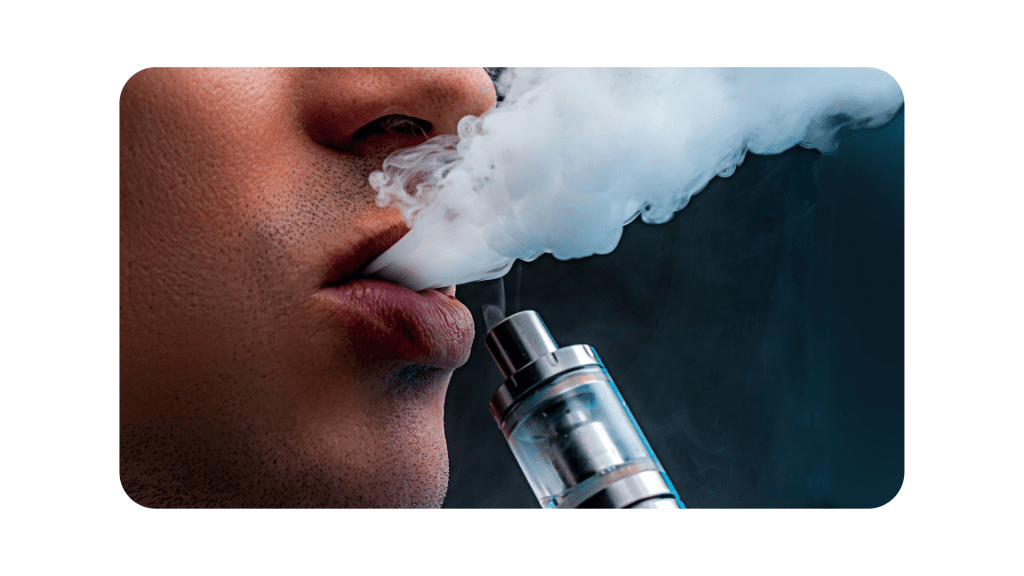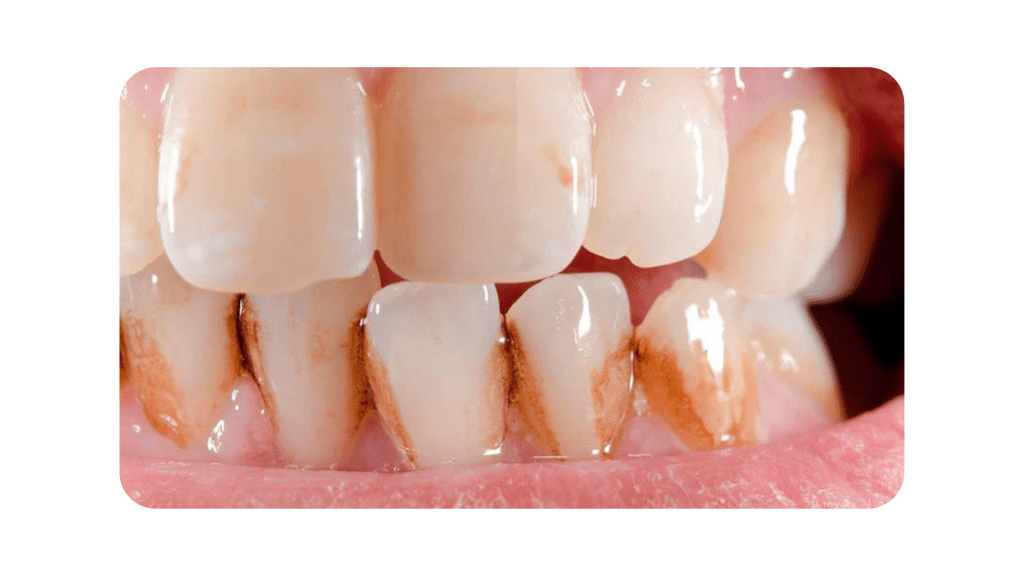
People are now free to light up whenever they like because vaping is less harmful than smoking, right?
A significant number of young people currently believe that vaping is a risk-free alternative to smoking and have therefore begun to embrace this trend. In 2017, 11.7% of high school students reported using electronic cigarettes. [Citation needed] After only one more year, in 2019, that figure had already increased to 27.5%. In 2019, even 10.5% of middle school students were using electronic cigarettes.
In 2020, the global market for electronic cigarettes was estimated to be worth $15.04 billion, and it is anticipated to expand at an astounding compound yearly growth rate of 28.1% until 2028.
However, safer does not always equate to risk-free. Although it's true that vaping is safer than smoking cigarettes, you're still just switching one poison for another when you do it. Let's discuss.
Vaping, often known as electronic smoking, is a technique of smoking that is marketed as being safer than cigarettes. E-juice, which may contain flavorings, nicotine, a number of other substances, and occasionally cannabis, is aerosolized by a heated metal coil into a vapor that the user inhales. The user may also inhale the vapor directly from the coil.
Vaping, despite the fact that it may leave a mild odor, does not smell like smoking traditional cigarettes. In addition, the marketing of electronic cigarettes is done in such a way as to make you believe that they just release innocuous water vapor.
However, the assumption that you are breathing in a "vapor," which may give the impression that it is harmless, is incorrect. The substance that you are inhaling is more of an aerosol, similar to the kind that you would receive out of a can of hairspray or bug killer. And just like secondhand smoke from cigarettes, breathing in secondhand aerosol can be harmful to others around you.
Effects of nicotine on one's health
Most vaping liquids contain nicotine (even the ones that are labeled nicotine-free). This substance can have potentially life-threatening effects on your cardiovascular system. In addition to causing your blood pressure to skyrocket, this condition can also quicken the rate at which your heart beats and restrict the blood vessels. It is also possible that it will cause the walls of the arteries to stiffen, which will contribute to a heart attack.
It is essential to be aware that, strictly speaking, electronic cigarettes contain less nicotine than conventional cigarettes do. On the other hand, users frequently take in more because it is simpler and more comfortable to puff away for a significantly longer period of time on a vape pen.
The most common oral conditions that might be brought on by vaping
What kind of effects can vaping have on dental health? Vaping not only has the potential to bring about or exacerbate a number of common dental disorders, but it also has the potential to bring about the severe health impacts that nicotine has on your cardiovascular system.
The human mouth is home to a diverse community of germs and bacteria, which are present in equal numbers in each person. Some of it is beneficial, since it helps to maintain the health and strength of your teeth and gums. On the other hand, some of it is harmful and can lead to the development of unpleasant conditions such as cavities and periodontal disease. The microbiome is the collective name for this assortment of beneficial and pathogenic microbes.
It is interesting to note that persons who vape have a microbiome that is comparable to people who have periodontal disease, even though vapers do not exhibit any outward symptoms of gum disease.
In addition, this study discovered that 43 percent of persons who vape had dental infections and periodontal disease, but just 28 percent of people who did not smoke had this condition. To be fair, 73% of smokers experienced concerns with their dental health, thus vaping is technically a superior alternative to smoking.
In addition to this, the nicotine can reduce the amount of saliva that is produced in your mouth. Dry mouth is not a condition that is typically observed in younger people; nonetheless, it is frequently prevalent in younger persons who use electronic cigarettes. Plaque can accumulate more quickly when saliva is not there to help wash it away. This gummy material makes a welcoming environment for pathogenic bacteria in your mouth by providing a cozy environment in which they can thrive. This, in turn, leads to an increase in the number of cases of mouth ulcers, cavities, and other problems related to oral health.
The nicotine contained in electronic cigarettes also has a muscle-stimulating effect, which can lead to or make bruxism worse (teeth grinding). Nighttime teeth grinding affects a lot of people, some of whom might not even be aware that they have a problem with it. On the other hand, discomfort in the jaw upon awakening as well as damage to the teeth are also strong indicators.
To put it succinctly, you won't have much luck finding a dentist that thinks vaping is a good idea. Dentists generally frown upon the practice.
Tobacco use and teeth that are yellow
The absence of smoke and tar in vapor produced by electronic cigarettes is one of the benefits of vaping rather than smoking conventional cigarettes. These are the primary components that contribute to the unpleasant yellowing of teeth that is commonly associated with smoking.

Nicotine, one of the components that makes up the majority of e-juice, can also give the liquid a yellowish hue, although typically not to the extent that it would produce a significant shift. Some flavored e-juices contain dyes or flavorings that, over time, might cause your teeth to take on a discolored appearance.
If, on the other hand, you take care of your teeth and maintain a healthy oral hygiene routine, you shouldn't have to worry too much about yellowing or discoloration of your teeth as a result of vaping. If you think that your teeth could benefit from a little bit of whitening, bring up the subject of tooth whitening with your dentist when you go in for your next dental appointment.
Oral cancer and e-cigarette use.
At this point in time, the connection between smoking regular cigarettes and developing lung cancer is pretty much common knowledge. When electronic cigarettes initially started gaining popularity, they were frequently sold to smokers as a method that could help them kick the habit. Unfortunately, it is becoming increasingly obvious that vaping comes with its own set of risks associated to cancer.
In one experiment, mice were subjected to the vapor of electronic cigarettes over the course of an entire year. After that period of time, it was discovered that these mice had a higher presence of precancerous alterations in the bladder as well as a higher incidence of lung cancer.
In addition, the use of e-cigarettes and other forms of vaping has been linked to the development of a hitherto unknown kind of lung illness. To such an extent that it has been given the name "E-Cigarette or Vaping Use-Associated Lung Injury," the condition affects the lungs (EVALI).
But what about cancer of the mouth?
At this point in time, it is not possible to gain a decent notion of the long-term implications of vaping on oral cancer because vaping is still relatively new. Nevertheless, there are a number of components that raise safety concerns. Formaldehyde, nitrosamines, and acetaldehyde are all examples of cancer-causing agents that have been discovered in electronic cigarettes.
When someone vapes, the heavy metals that are employed in the heating coil become aerosolized and are then inhaled by the person doing the vaping. Periodontal disease, inflammation, mouth cancer, and even dementia can all be brought on by prolonged contact with these metals. In addition, the aerosols from some electronic cigarettes cause DNA damage, which can ultimately result in cancer.
Tobacco use has been linked to periodontal disease.
Periodontal disease is more common in people of advanced age, according to dentists, than in those of younger ages. Periodontal disease takes some time to manifest, therefore maintaining good oral hygiene can be an effective preventative measure.
However, dentists report noticing increasing occurrences of periodontal disease in younger individuals as a direct result of the growth in popularity of vaping. Vaping is typically to blame when younger patients present with periodontal disease, dry mouth, or mouth ulcers. This is especially true in patients who vape.
The nicotine that is found in e-liquids causes constriction in the blood vessels that supply nutrition to your gums and teeth. It also helps to weaken the enamel on your teeth, making it easier for the bacteria in your mouth to start eating away at your teeth and causing cavities. This makes it more likely that you may have tooth decay.
Your inflamed and compromised gums have the potential to reach a stage where they are no longer capable of adequately supporting your teeth over time. If therapy is not received, it is likely that teeth will be lost.
Should you quit vaping?
If you've been wondering to yourself, "Why should I quit vaping?" we hope that you now have a better understanding of the risks to your dental health. The marketing of vaping products would have you believe that electronic cigarettes are a healthier alternative to smoking traditional cigarettes. Despite the fact that this statement is accurate, users should be aware that safer does not necessarily mean safe and that electronic cigarettes come with their own set of risks.
Why you need to visit the dentist more frequently if you are a vaper
If you do choose to vape, you should be informed of the potential adverse effects that vaping can have on your oral health. Brushing and flossing your teeth at least twice a day, along with any other regular dental hygiene practices, will require an increased level of attention and care from you.
In addition, you should visit the dentist more frequently than the twice-yearly appointments that are suggested. If treated promptly by a dental professional, common oral disorders like cavities and periodontal disease can have their detrimental consequences mitigated or even eliminated completely.
CLICK HERE TO SCHEDULE YOUR APPOINTMENT!
GET TO KNOW YOUR BEST DENTIST IN SUMMERLIN
Dr. Marianne Cohan was voted The Best Dentist/ Dental Office and Best Cosmetic Dentist from The Las Vegas Review-Journal in 2020 and 2021. She received her Doctor of Dental Surgery (DDS) from the State University of New York at Buffalo in 1992.

With an emphasis on cosmetic dentistry, complete makeovers, and implant dentistry, Dr. Cohan is committed to continuing education and feels that we never stop learning. Dr. Cohan takes pride in using high-powered magnification to perform minimally invasive restorative dentistry. She uses all the latest technological advances including digital radiography, digital photography, computer simulations, and high-resolution pictures of your proposed treatment on 55-inch screens. She also utilizes CBCT (cone beam) and laser technology.
Dr. Cohan is always available to her patients and is available for any dental emergency.